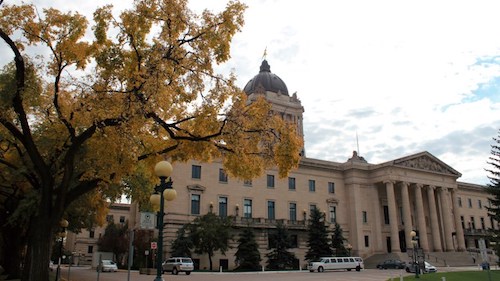In the first cabinet shuffle of his second term as premier, Brian Pallister has transferred post-secondary responsibilities from the education department to the minister of economic development and training.
Former minister of agriculture Ralph Eichler will take on issues pertaining to post-secondary education in the province. This was previously education minister Kelvin Goertzen’s department.
UMSU president Jakob Sanderson, who noted it was too early to make a definitive statement on the issue, said the shift was “probably in line with what we’ve seen [which] is a demonstrated government view that post-secondary education is something that they for sure view as part of economic development and training.”
Sanderson called this view a “very accurate picture,” noting the university is “an economic engine for the province.”
“What we made sure to put on the agenda is prioritization of a high quality of acceptable and affordable education and paint that picture of how that’s going to continue to improve the economy of Manitoba as a whole.”
University of Manitoba Graduate Students’ Association (UMGSA) president Carl Neumann said he, like Sanderson, believes the shuffle is just a continuation of work already being done under the Pallister government.
“This is sort of one part of a bigger trend with the particular provincial government we’ve got now,” he said.
“Certainly they’ve been very focused on, when it comes to education, training for jobs specifically or to meet industry needs and that’s something that’s been ongoing already. So this is sort of another step in that process of what they’re already doing.”
Sanderson said students concerned about what the change may mean for the U of M’s priorities should know the responsibility is “incumbent upon the university community and us, the student unions, to really tell that story to the new minister about how important all facets of the university are.”
“We are more requiring of a diversified set of skills in the workforce than we’ve ever been in our society,” he said.
“And education is not just a matter of job training. We need to be able to churn out graduates who have a really diverse set of skills.”
Neumann added that the university was doing its best to accommodate the government while still attempting to maintain some autonomy.
“The university definitely has the government’s priorities in mind,” Neumann said.
“They want to have some pushback — I think they’re still quite hesitant to push back too much, of course, because half the university’s funding, or just over half of it, is coming from the provincial government.”
U of M president David Barnard declined to speak with the Manitoban but issued a statement saying many of the U of M’s priorities “complement those of the government.”
“Investment in this institution and the entire post-secondary sector remains critical to this province’s competitiveness nationally and globally,” the statement reads.
“We welcome our ongoing engagement with government and hope they continue to prioritize higher education.”


